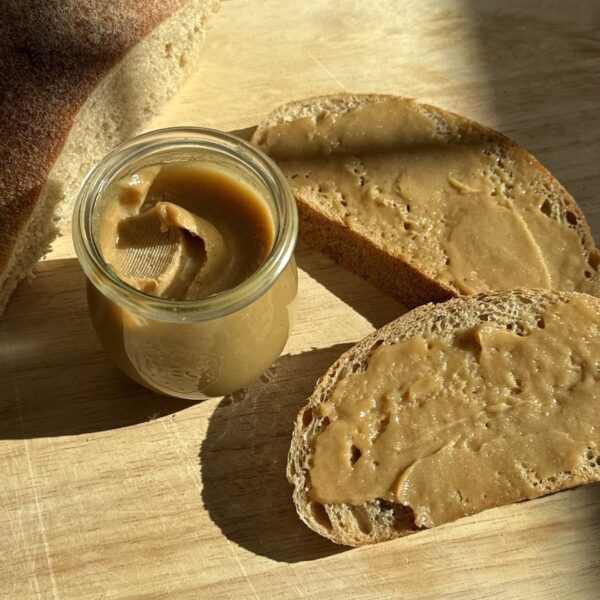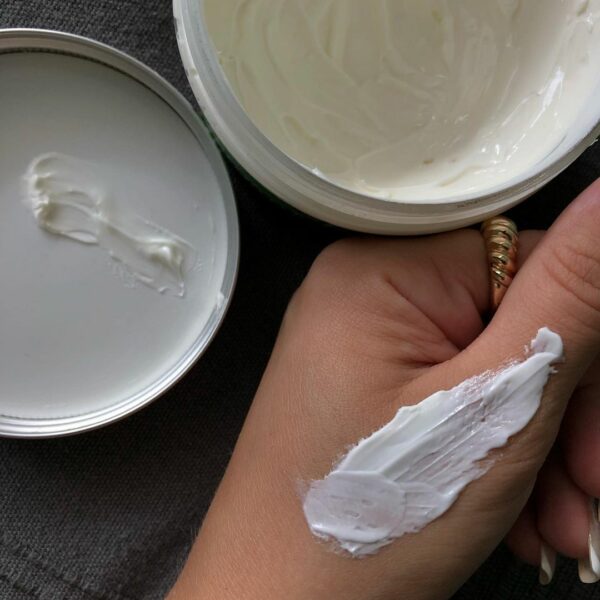In the same way that we are hyper-selective about what we use to wash our face, we should be exercising caution when it comes to what we use to wash our body. Water itself, let alone most shower taps (and yes, even those we’ve made an effort to filter), can throw off the natural pH of our skin and compromise our protective barrier, so it’s crucial to make sure that when we suds up, we aren’t rubbing harmful chemicals into our body’s largest organ and declaring ourselves “clean.” Below, we’re sharing some of the top ingredients to avoid in a body wash.
Sodium Lauryl Sulfate (SLS)
We listed this one first because it’s the most common evil, and it can be a challenge to find products without it. Even certain products that are marketed as “natural” can contain this compound, which is why it’s so important to read and understand labels before purchasing! It technically is natural, and most often comes from palm oil, which is one of the major culprits of destruction in the Amazon, for one. But also, its main purpose is not for the health of our skin, but just to create an attractive foam for the senses. It’s also one of the most irritating agents on the skin and a major culprit of dryness and dermatitis.
If you ever see the word “fragrance” listed in your ingredients, run, don’t walk, away from it. Throw it! Kill it with fire. Actually, keep it far from any flames, because the product is likely explosive. What really chaps our hide about “fragrance” being listed as an ingredient is that it is never one single ingredient. Fragrance is typically derived from a laundry list of ingredients on its own, all of which don’t have to be disclosed are may be incredibly toxic and not intended for use on or in the body in any way. Plus, they are often kept stable with the use of phthalates. The US Department of Health and Human Services as well as the EPA have labeled phthalates as possible carcinogens. Hard pass.
Petroleum (and Mineral Oil)
While we wish we didn’t have to state the obvious, let’s revisit the fact that mineral oil, while sounding natural and healthy, is a by-product of gasoline. Why, WHY would any company that caters to beauty or skincare dare to put such a thing in their products? Well for one, it’s really cheap. It’s also colorless and odorless, and has a shelf life of eternity. However, it literally suffocates your skin and hair, as if you Saran-wrapped yourself (just a heads up, plastic is made with petroleum). While this traps moisture, it also traps dirt, dead skin, and bacteria. Petroleum offers the facade of soothing moisture, while doing absolutely nothing whatsoever to nourish your skin. Beware that labels can trick you by listing it under another name—keep an eye out for paraffin, mineral oil, butylene glycol, petrolatum, and isopropyl alcohol.
These atrocious acronyms are serious trouble. They stand for diethanolamine, monoethanolamine, and triethanolamine, and they are top hormone disruptors. This means while they may not manifest themselves immediately as a breakout or skin irritation (though they can and often do), they are very easily absorbed into the body through the skin, accumulate in our organs, and don’t detoxify quickly, wreaking havoc on other systems. They are also highly reactive to other common cosmetic ingredients, and when combined with some of them, these DEAs, MEAs, and TEAs transform into a very potent carcinogen called nitrosodiethanolamine, also known as NDEA.
Shop our clean body care guide.
Poosh Edit: Best of Beauty:

The content provided in this article is provided for information purposes only and is not a substitute for professional advice and consultation, including professional medical advice and consultation; it is provided with the understanding that Poosh, LLC (“Poosh”) is not engaged in the provision or rendering of medical advice or services. You understand and agree that Poosh shall not be liable for any claim, loss, or damage arising out of the use of, or reliance upon any content or information in the article.






































